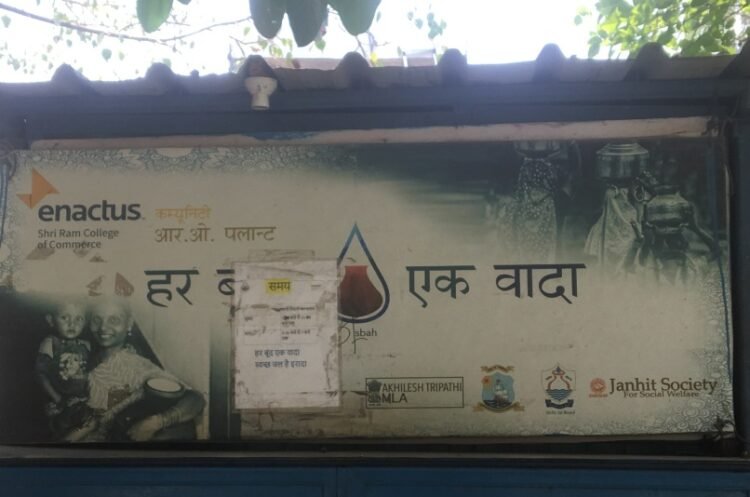NEW DELHI: In India, an estimated 38 million lives are lost every year due to waterborne diseases like diarrhoea. Presence of microbial pathogens have led to non-availability of potable water. An estimated 63 million Indians do not have access to clean drinking water, leaving them with no alternative but to depend on contaminated water for drinking and cooking purposes.
Moreover, lack of awareness and expensive, filtration mechanisms are depriving people of the most basic livelihood need.
Project Asbah started by students of Shri Ram College of commerce (SRCC), aims to tackle the issue of lack of access to clean drinking water through the adoption of the necessary strategy as per the need of the area.
This project is a part of Enactus, a non profit organisation of 70 thousand students operating in 30 countries.
 The students undertook a campaign to install 4 water plants at different locations in Azadpur (Delhi). Each plant benefits around 550 families which is approximately 2750 people. These plants provide highly affordable RO water to these families at INR 4 for 20 ltr daily.
The students undertook a campaign to install 4 water plants at different locations in Azadpur (Delhi). Each plant benefits around 550 families which is approximately 2750 people. These plants provide highly affordable RO water to these families at INR 4 for 20 ltr daily.
The water plants work on a rechargeable card-based system with 30-days validity. The RO plants are run by the two female entrepreneurs, thereby empowering them by providing them with employment.
A committee of 21 students has been formed to do the job. The students are from the first and second years of the college.
Apart from working on water-related issues, the NGO is also working in the other areas likeoil processing, agricultural farm markets and handicraft.
The NGO has also taken steps to spread awareness among the rural people about the importance of clean drinking water through messages, film dialogues and pictoral representations.
The students have ensured that the purification solution remains an eco-friendly process. The RO plants are set up in a way that the wastewater generated is used up in a nearby toilet complex.The organisation also ensures that waste material as a result of water purification is stopped from entering into the ground and getting mixed with the groundwater.
The students are also planning to spread awareness among the people about the ill-effects of disposing-off garbage on the roads.







